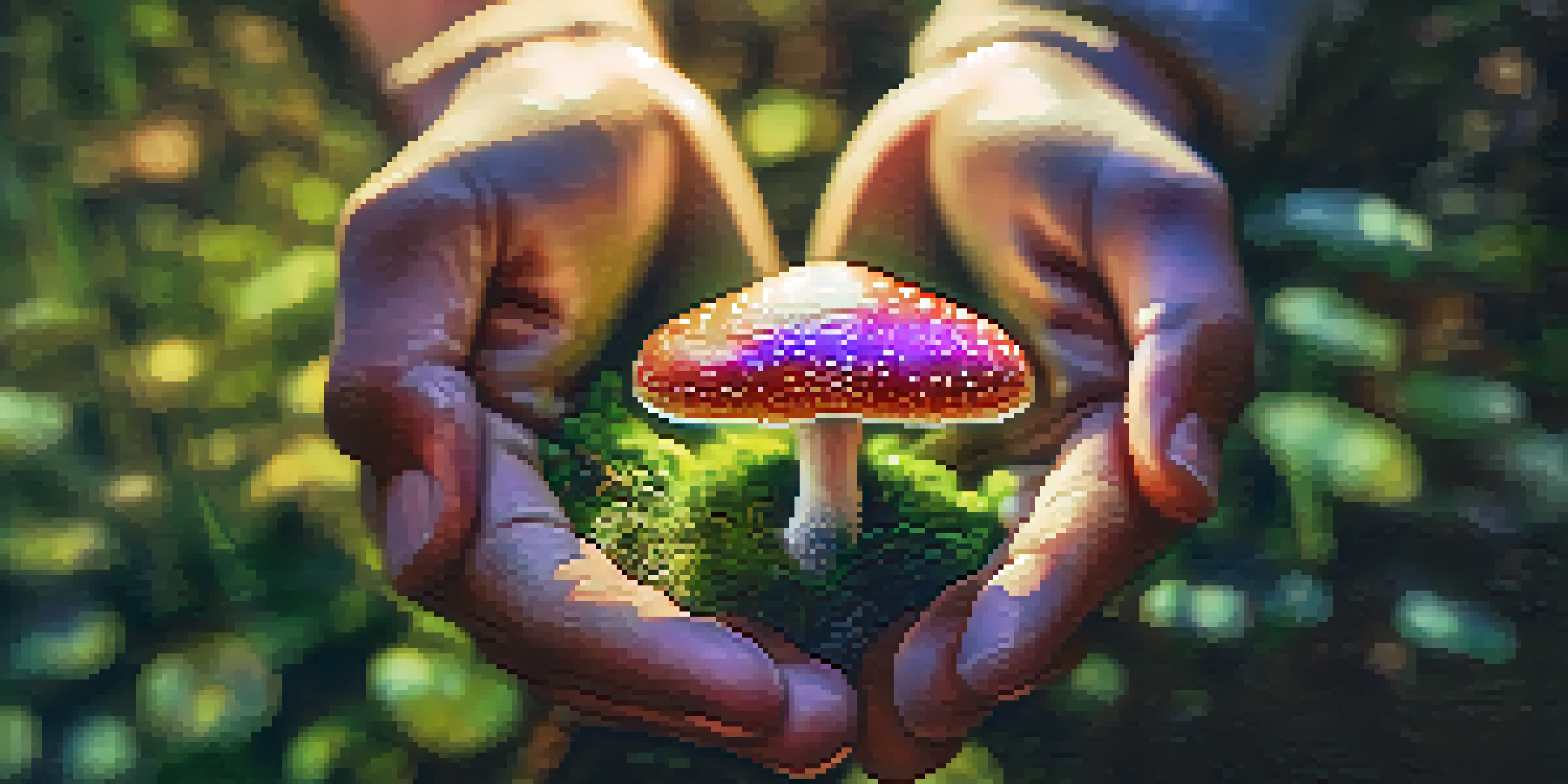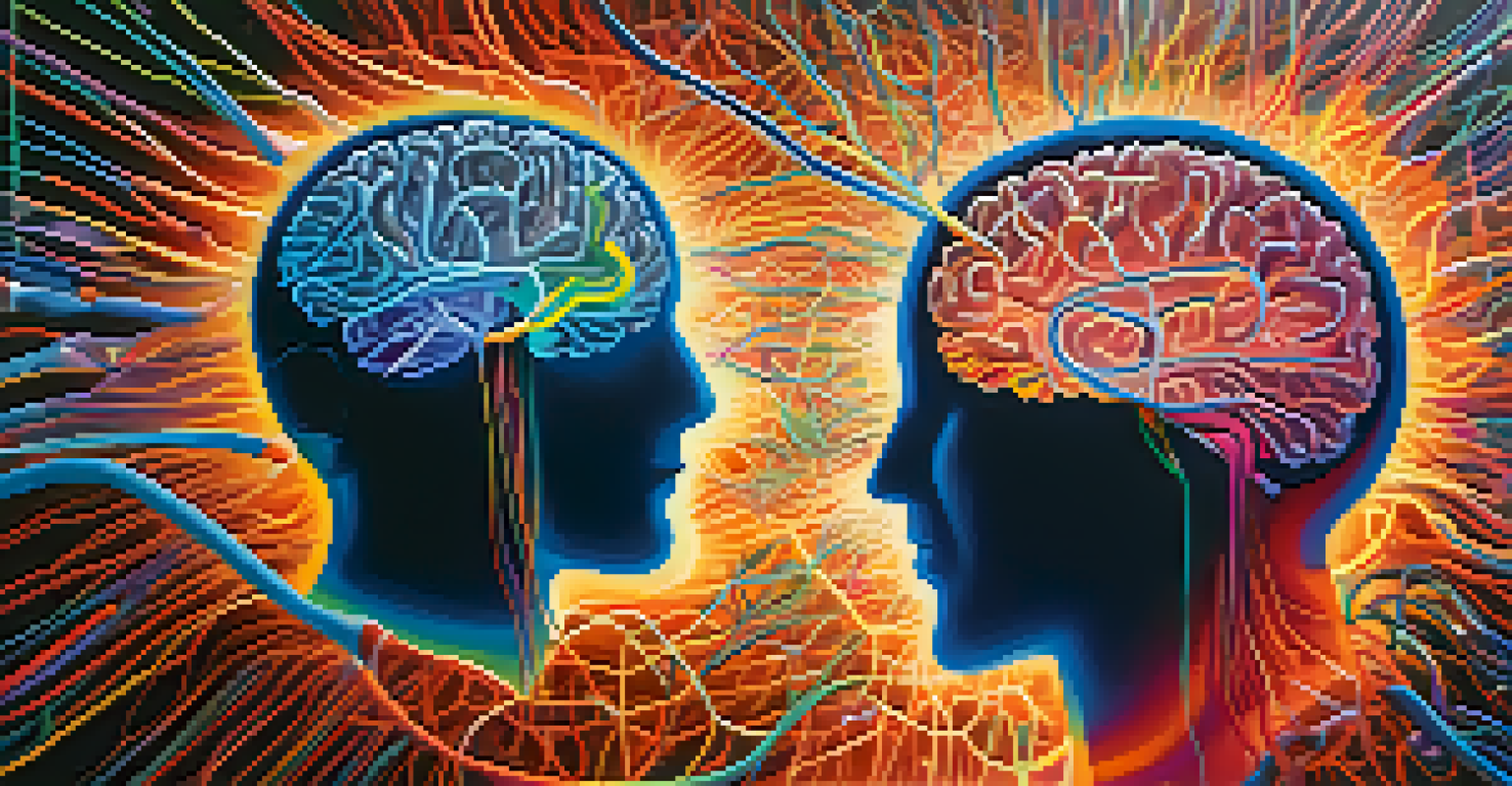Psychedelic Sports: Entheogens in the World of Athletics

What Are Psychedelics and Entheogens?
Psychedelics are substances that alter perception, mood, and cognitive processes. Entheogens, a subset of psychedelics, are often used in spiritual or religious contexts to promote introspection and connection. These substances can include mushrooms, ayahuasca, and peyote, among others, and they have been used for centuries across various cultures.
Psychedelics can help us confront mental barriers, allowing us to push through psychological limits that we previously thought were insurmountable.
With a rising interest in their potential benefits, psychedelics are making their way into the realm of sports. Athletes are increasingly exploring how these substances can enhance their performance and mental resilience. Understanding the historical and cultural significance of these substances is crucial to grasp their potential impact on athletics.
As we delve into the world of psychedelic sports, it's essential to differentiate between recreational use and intentional, guided experiences aimed at personal growth. This distinction is vital for understanding how psychedelics can be responsibly integrated into athletic training and performance.
The Science Behind Psychedelics and Performance
Recent studies suggest that psychedelics may enhance creativity, focus, and emotional resilience—qualities that are invaluable in sports. For instance, substances like psilocybin have been linked to increased neuroplasticity, which is the brain's ability to adapt and learn. This can be particularly beneficial for athletes looking to refine their skills and improve their mental game.

Moreover, psychedelics can help athletes confront mental barriers, such as anxiety and fear, which often hinder performance. By fostering a deeper self-awareness, these substances may allow athletes to push through psychological limits that previously felt insurmountable. This newfound mental clarity can be a game-changer in high-pressure situations.
Psychedelics Enhance Athletic Performance
Research suggests that psychedelics can improve creativity, focus, and emotional resilience, which are crucial for athletes.
However, it's important to approach this topic with caution. While the benefits are promising, more research is needed to fully understand the implications of psychedelic use in sports. Athletes and coaches must weigh the potential advantages against the risks and legal considerations surrounding these substances.
Notable Athletes Exploring Psychedelics
Several high-profile athletes have openly discussed their experiences with psychedelics, shedding light on this unconventional approach to enhancing performance. For example, UFC fighter Joe Rogan has spoken about the mental clarity and focus he gains from using psychedelics. His willingness to share his journey has contributed to a growing acceptance of these substances in the athletic community.
As we embrace new methods for personal growth, the stigma surrounding psychedelics may diminish, paving the way for innovation in athletic performance.
Similarly, retired NFL player Kyle Turley has advocated for the therapeutic use of psychedelics to treat injuries and mental health issues faced by athletes. His story highlights the potential benefits of psychedelics beyond performance enhancement, emphasizing their role in recovery and well-being.
These athletes serve as case studies, challenging the stigma surrounding psychedelics and encouraging others to explore their potential benefits. By sharing their experiences, they inspire a new generation of athletes to consider alternative methods for personal and professional growth.
Cultural Perspectives on Psychedelics in Sports
The cultural context surrounding psychedelics varies widely, influencing how they are perceived in sports. In some indigenous cultures, these substances are viewed as sacred tools for enhancing physical and spiritual well-being. This perspective contrasts sharply with the often negative stigma associated with recreational drug use in mainstream sports.
Understanding these cultural differences is crucial for athletes considering psychedelics as part of their regimen. It invites a broader conversation about the role of spirituality and mental health in athletic performance. By embracing these varied perspectives, athletes can cultivate a more holistic approach to their training.
Cultural Perspectives Matter
Understanding the cultural context of psychedelics can shape how athletes view their use in training and performance.
Moreover, as the conversation around mental health in sports continues to evolve, so too does the potential for psychedelics to be integrated into mainstream athletic practices. Challenging preconceived notions can lead to innovative approaches that prioritize both mental and physical well-being.
Risks and Considerations of Psychedelic Use
While the potential benefits of psychedelics are intriguing, it's essential to acknowledge the risks involved. Not all individuals respond positively to these substances; some may experience anxiety, paranoia, or other adverse effects. Athletes must consider their mental health history and personal circumstances before exploring psychedelics.
Additionally, the legal status of many psychedelics complicates their use in sports. In many regions, substances like psilocybin and LSD are still classified as illegal, which can lead to disciplinary actions in professional sports. Athletes must navigate these legal landscapes carefully to avoid repercussions while pursuing alternative methods for performance enhancement.
Ultimately, a cautious and informed approach is key. Athletes interested in psychedelics should seek guidance from qualified professionals and integrate these experiences thoughtfully into their training regimens. Balancing potential benefits with the associated risks is essential for responsible use.
The Future of Psychedelics in Athletics
As research continues to unfold, the future of psychedelics in athletics looks promising. With studies showing potential benefits for mental health and performance, there is a growing movement advocating for their acceptance in sports. This shift could revolutionize how athletes approach training, recovery, and competition.
Moreover, the increasing acceptance of mental health discussions in sports paves the way for psychedelics to be viewed as legitimate tools for performance enhancement. As more athletes share their positive experiences, the stigma surrounding these substances may diminish, fostering an environment of exploration and innovation.
Risks Must Be Considered
While there are potential benefits, athletes need to be cautious of the legal and mental health risks associated with psychedelics.
In the coming years, we may see more structured programs integrating psychedelics into athletic training. This could lead to a new era of sports where mental clarity and emotional resilience are prioritized alongside physical prowess, ultimately enhancing the overall athlete experience.
Conclusion: Embracing a New Athletic Paradigm
The intersection of psychedelics and sports invites us to rethink traditional approaches to athletic training and performance. By considering the potential benefits of entheogens, athletes can explore new pathways for personal growth and mental resilience. This evolving narrative challenges the norms of how we view performance enhancement.
As we move forward, it's crucial to foster an open dialogue about the responsible use of psychedelics in athletics. Athletes, coaches, and sports organizations must work together to create safe environments for exploration while prioritizing mental health and well-being.

In embracing this new paradigm, we can unlock the full potential of athletes, allowing them to thrive both on and off the field. The journey into psychedelic sports is just beginning, and the possibilities are as exciting as they are uncharted.